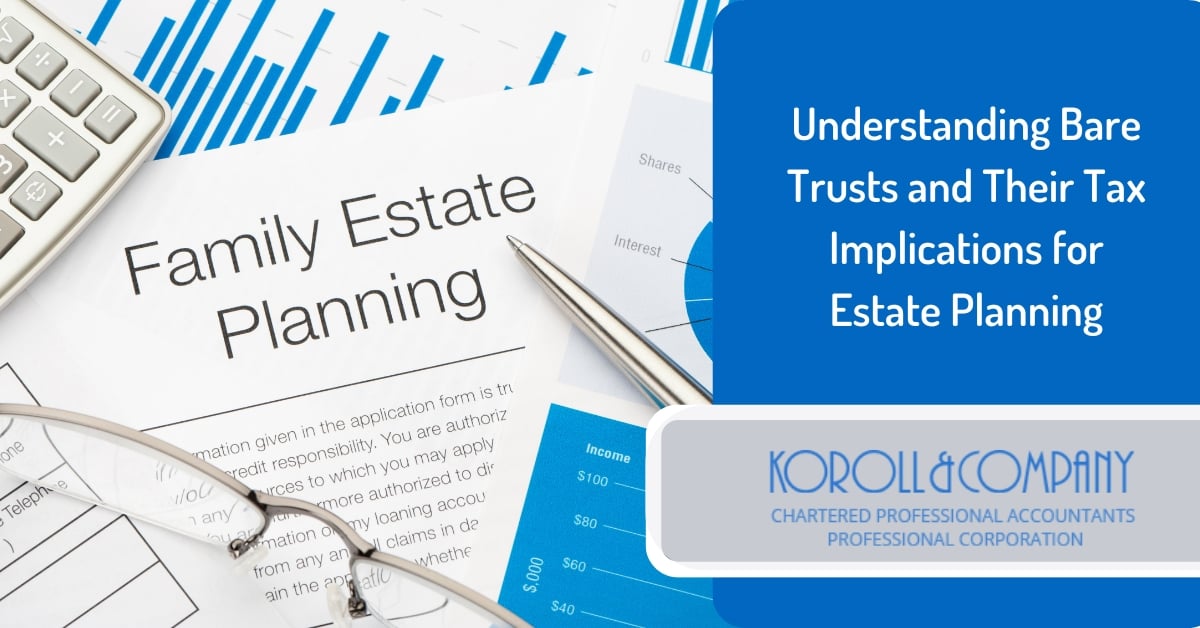
Are you someone who has joint accounts, or jointly holds real estate with your children for estate planning purposes? If so, you might be subject to new legislation regarding enhanced reporting requirements for trusts, with a trust tax return due by March 30, 2024.
In recent times, there has been a concerted effort to gather more detailed information on trustees, beneficiaries, and settlors of trusts. However, the challenge arises when dealing with bare trusts, particularly if no income is reported on the assets held within them.
What exactly are bare trusts, and why should you be aware of them in the context of estate planning?
Understanding Bare Trusts
A bare trust is a simple form of trust in which the beneficiary has an absolute right to the capital and assets within the trust, as well as any income generated from it. However, legal ownership of the assets is held by a trustee.
Here are some common examples of bare trusts:
1. Joint Bank or Investment Accounts: Often, an adult child is added to a joint account with a parent for the purpose of facilitating estate administration upon the parent's passing. However, the parent maintains 100% entitlement to the account during their lifetime and continues to report 100% of the income from the account.
2. Joint Ownership of Real Estate: In estate planning, a parent might add their adult child to the title of their home or cottage. Despite this, the parent retains 100% beneficial ownership of the property during their lifetime.
3. Corporate Ownership of Assets: Sometimes, a corporation holds title to assets for the benefit of someone else, such as an individual. This is often done for probate planning purposes, and the individual still reports 100% of the income from the assets on their personal tax return.
Reporting Requirements and Next Steps
With the new legislation imposing enhanced reporting requirements for trusts, it's crucial to be proactive in understanding your obligations regarding bare trusts. If you are aware of any assets held jointly with someone where the person(s) on title differs from the beneficial owner(s), it's essential to contact your Koroll representative.
This step is necessary to ensure compliance with trust tax return obligations. However, if the asset is already being reported on a trust tax return, further action may not be required.
Bare trusts play a significant role in estate planning, especially when it comes to joint ownership of assets with children or using corporate structures for probate planning. Understanding the implications and reporting requirements associated with bare trusts is essential for ensuring compliance with tax regulations and effective estate administration.
If you have any questions or concerns regarding your bare trust or trust tax return obligations, do not hesitate to reach out to your Koroll representative for guidance and assistance.
By staying informed and proactive, you can navigate the complexities of bare trusts with confidence and ensure a smooth transition of assets for future generations. For more information and assistance, please contact us today.






